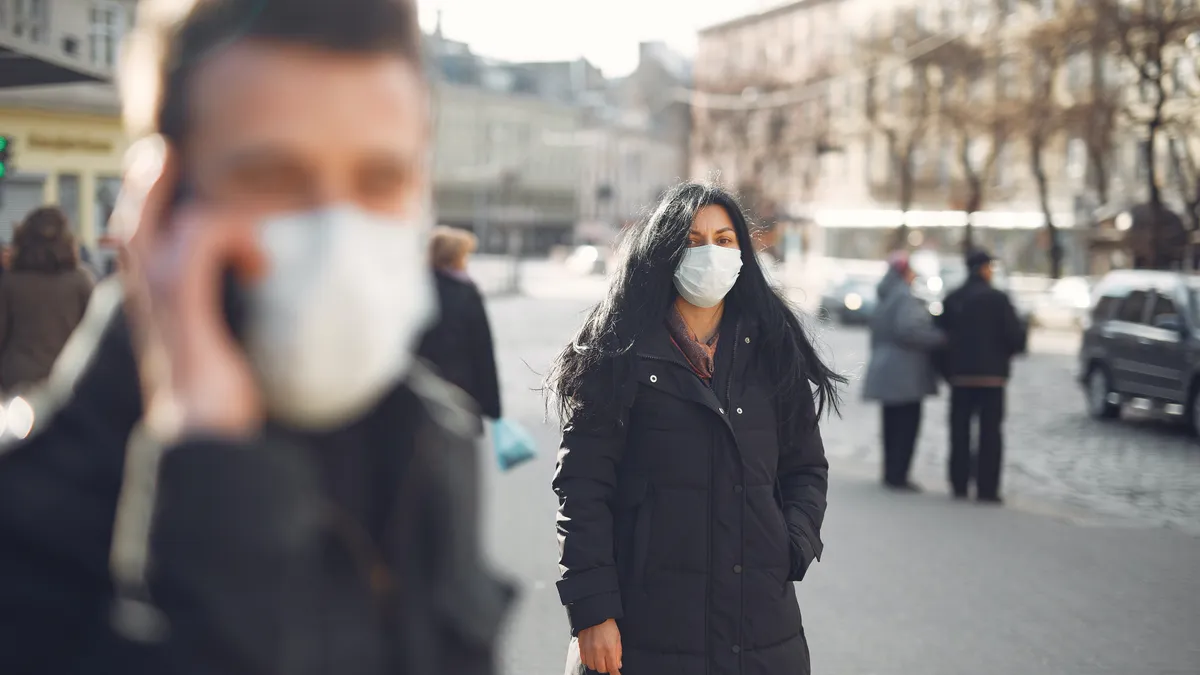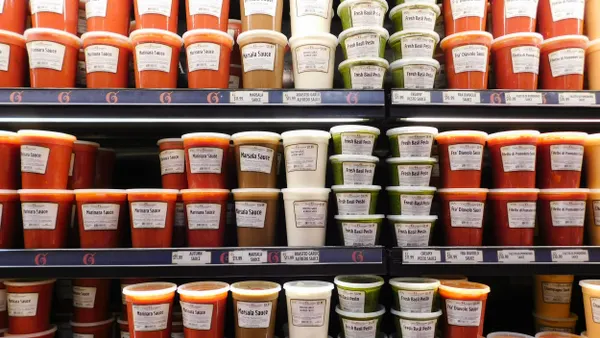Dive Brief:
-
Even as an end to the pandemic seems possible, it's leaving its mark on consumers worldwide, with nearly half saying they've changed their buying habits due to ongoing financial and health-related anxiety, according to a survey of 7,000 consumers conducted by consulting firm AlixPartners. In the U.S., 43% say so.
-
The U.S. has the highest percentages of what AlixPartners found to be the most anxious consumers, with 44% "highly concerned about both health and finances." This group is "experiencing both the most significant and the most permanent changes in purchasing behavior," AlixPartners said.
-
The worry extends to other issues, as 80% of consumers globally say they're more concerned about the environment, and 38% say that now affects their buying decisions, according to a report released Thursday. The durability of the impact on purchase behavior was a surprise, Managing Director David Garfield said via video conference.
Dive Insight:
The pandemic has ushered in a new genre of market prognostication, as researchers tackle the question of how the disease outbreak has affected consumers, and how long those effects will last. For this study, AlixPartners spoke with consumers from China, France, Germany, Italy, Japan, Saudi Arabia, Switzerland, the United Kingdom and the U.S. and found that the depth and longevity of behavior changes are correlated with anxiety around health, finances or both.
Two-thirds of the world's population, at least in those nine countries, expresses some amount of optimism about the future thanks to vaccines. But even AlixPartners researchers said they were surprised at the extreme levels of anxiety still endured by some, prompted by economic struggles and worries about both physical and mental well-being.
Intense and ongoing anxiety in the U.S. could explain a finding by the Conference Board this week that 62% of U.S. consumers in the first quarter have cut back on spending, only slightly down from the 64% during the peak of the pandemic.
Across the globe, AlixPartners found young people to be especially vulnerable, with 34% of those ages 18 to 24 reporting that they are "extremely" or "very" concerned about mental health, 35% that are concerned about their finances and 26% that are concerned about their physical health. Among those 25 to 34 years old, 30% are "extremely" or "very" concerned about mental health, 32% about their finances and 24% about their physical health.
The AlixPartners team's methodology revealed four distinct segments of consumers: those who are "health concerned," (more likely to have self-isolated and faced minimal employment disruption like job or wage loss); those "least disrupted," (no children at home, no employment disruption and not self-isolated); those who are "budget constrained," (likely to have worked on-site rather than from home, and/or faced job or wage loss); and those "most anxious," (more likely to have worked remotely, self-isolated, and faced job or wage loss, with children at home who are distance-learning).
The magnitude and apparent longevity of the pandemic's effects surprised the researchers, Garfield said. Even if some consumers do revert back to their previous habits to some extent, it's meaningful that these intentions and attitudes are being expressed so strongly by so many, he said.
"Obviously consumer tastes and preferences and purchase behavior are constantly evolving, but in terms of really substantive measurable shifts, it's not often really large swaths of consumers experience or display significant changes in a relatively short period of time," he said. Usually "the magnitude is less, or the portion of the consumer population that's impacted is less."
AlixPartners is also the latest to find what's likely to be a permanent bump in online sales of apparel, with 37% worldwide and 29% in the U.S. saying they'll shop for those items online more than they did before. Dissatisfaction with e-commerce also emerged, however, with 26% of grocery shoppers globally saying they'll shop more online but 27% saying they'll shop more in-store.
















